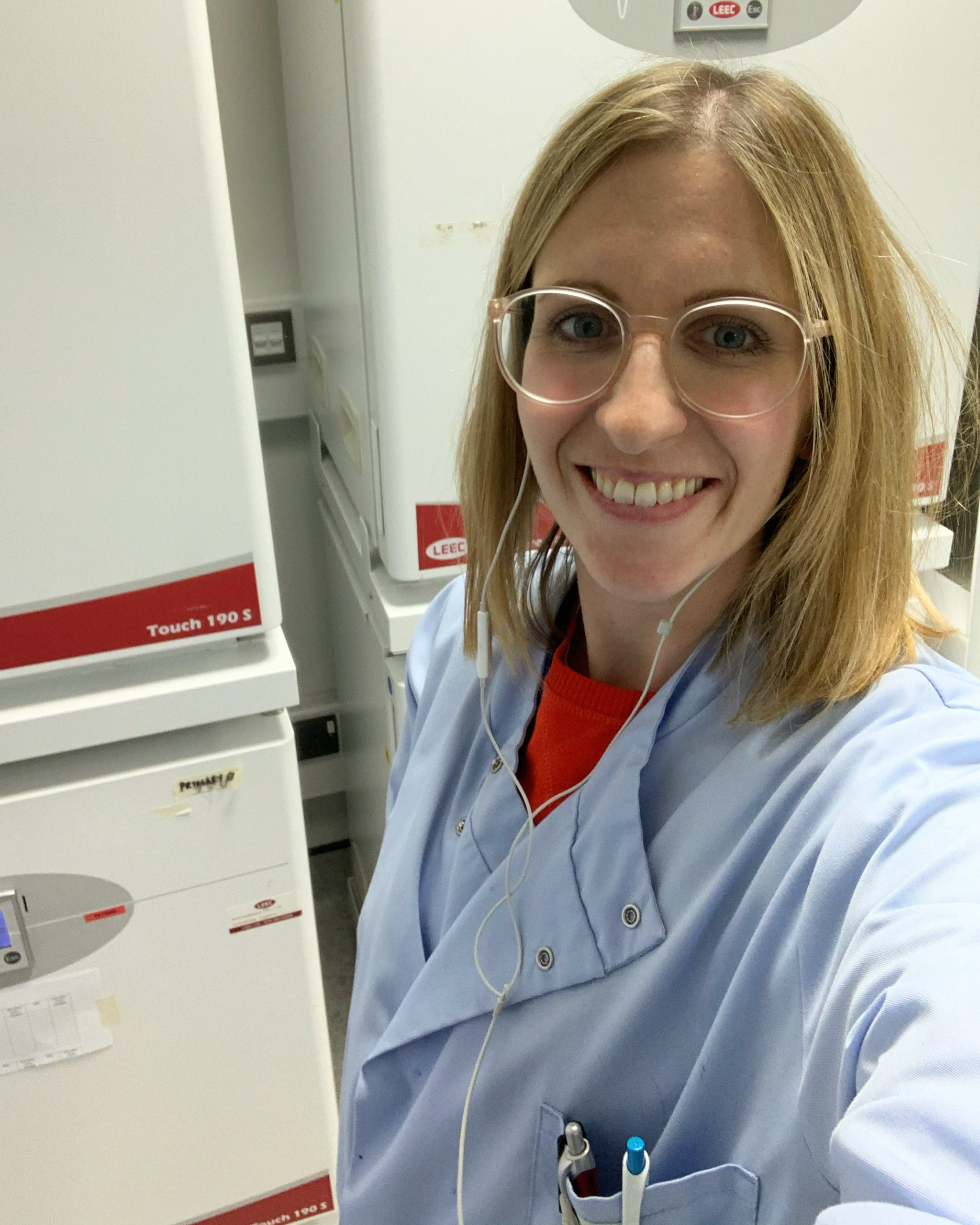
We thought you would like to hear about what it is like to work in metastatic breast cancer research. Here, we chat to Dr Rachel Eyre who works at The Manchester Cancer Research Centre about her life as a research scientist.
What is the title of your research project?
I don’t currently have a specific title as I’m working on a couple of different projects, but my research all focusses on understanding how breast cancer cells are able to grow in different organs in the body. I’ve just finished a project looking at how breast cancer cells grow in the bone, and I’m now hoping to expand these findings to see if breast cancer cells grow in the lung and the liver in the same way.
Can you summarise your main objectives?
We know that once breast cancer is growing in secondary organs (such as the bones, lungs, liver and brain) that it can be managed clinically, but it cannot currently be cured. My work aims to understand how breast cancer cells grow in these secondary organs. I’m specifically trying to identify signals that come from the organs which help breast cancer cells to grow in them, and to work out exactly how they do this. The overall aim of my work is that if we can understand how normal organs help breast cancer cells to grow, we might be able to block signals coming from these organs to prevent and treat secondary breast cancer.
What led you to this area of research?
When I was at university doing my undergraduate degree two of my mum’s best friends, Alison and Karen, both died from metastatic breast cancer. I couldn’t believe that there wasn’t a cure available for them, and I decided I wanted to use any opportunities I got as a scientist to make a difference and change that. Thinking about patients with breast cancer is still what inspires me to go to work and get on with my research every day.
Are there any challenges?
Lots! From a lab perspective it is very hard to study secondary breast cancer, because we lack good laboratory models. Part of my work has been trying to develop better lab models to study secondary breast cancer, so we can hopefully learn more about it. From a personal perspective being a scientist is very challenging as we do not hold permanent jobs and our employment is entirely dependent on bringing in research money. As a mum of 3 young children it is very stressful knowing that I might be out of a job each year, and a lot of scientists (particularly female scientists) leave the profession because of this, which is a great shame for research and for the patients who we are trying to help.
What are your career aspirations?
I am currently an Early Career Researcher within the Manchester Breast Centre, working for Professor Rob Clarke. I absolutely love working here, and I can’t imagine a better place with better facilities to do breast cancer research. So my career aspirations are to continue as a researcher here in Manchester, and I’d love to run my own group specialising in secondary breast cancer research.
Is there any information or advice you would like to give to patients?
We’re really keen to hear from you! We want to do the research that you want to see, so please get in touch and tell us what matters to you. We’re so excited to be working more closely with METUPUK, and are really looking forward to patients playing a greater role in our research.
Is there any advice you’d like to give to students thinking about following in your footsteps?
Being a research scientist is a not an easy career choice, but it’s also incredibly rewarding. I feel very privileged to go to work and get a chance to try and improve cancer treatments, and I can’t imagine wanting to do anything else.
Thank you Rachel, we look forward to further developments from your research and we at METUPUK look forward to working with you too!
Beth Roberts
